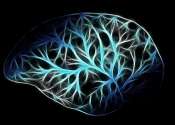Acute breakdown of the glial network in epilepsy
Tohoku University scientists and their colleagues in Germany have revealed that a first-time exposure to only a brief period of brain hyperactivity resulted in an acute breakdown of the inter-cellular network of glial cells. ...
Mar 1, 2021
0
4









